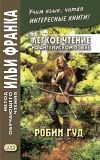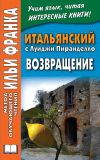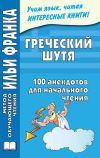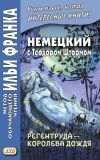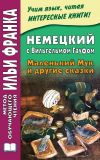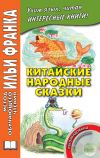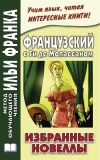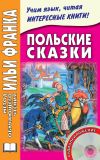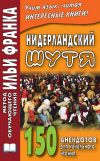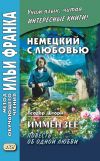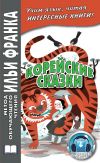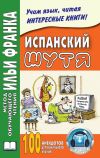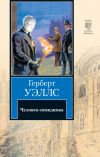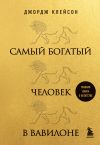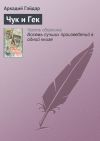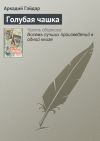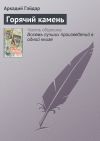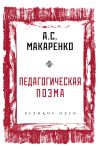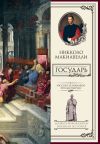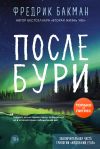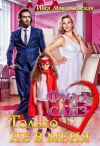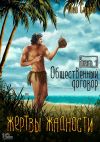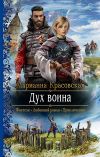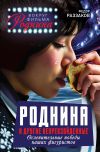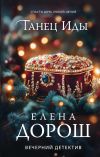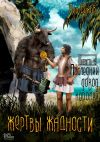Текст книги "Английская коллекция. Уильям Батлер Йейтс. Рассказы о Рыжем Ханрахане / W. B. Yeats. Stories of Red Hanrahan"
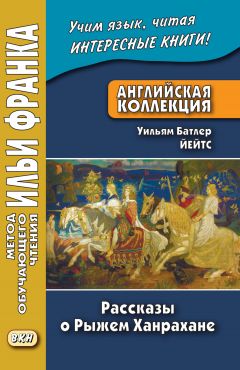
Автор книги: Уильям Йейтс
Жанр: Иностранные языки, Наука и Образование
Возрастные ограничения: +16
сообщить о неприемлемом содержимом
Текущая страница: 4 (всего у книги 9 страниц)
The old woman went then to where her husband was playing cards (тогда старушка подошла /туда/, где ее муж играл в карты), but he would take no notice of her (но тот не стал обращать на нее внимания), and then she went to a woman of the neighbours and said (тогда она подошла к одной женщине-соседке: «к женщине из соседей» и сказала):
through [θru:], wall [wɔ:l], where [weǝ]
He made your life and my life before the beginning of the world, he made them that they might go through the world, up and down, like the two best dancers that go on with the dance up and down the long floor of the barn, fresh and laughing, when all the rest are tired out and leaning against the wall.”
The old woman went then to where her husband was playing cards, but he would take no notice of her, and then she went to a woman of the neighbours and said:
“Is there no way we can get them from one another (неужто нет способа, каким мы можем оторвать их друг от друга; way – путь, дорога; способ)?” and without waiting for an answer she said to some young men that were talking together (и, не дожидаясь ответа, сказала молодым людям, которые болтали друг с другом: «вместе»): “What good are you (на что же вы годитесь; good – хороший; годный) when you cannot make the best girl in the house come out and dance with you (ежели не можете заставить лучшую девушку в доме выйти и потанцевать с вами)? And go now the whole of you,” she said (а теперь идите вы все, – сказала она; whole – всё, целое), “and see can you bring her away from the poet’s talk (и поглядим, сможете ли вы увести ее от болтовни этого поэта).” But Oona would not listen to any of them (но Уна не желала слушать никого из них), but only moved her hand as if to send them away (а только махнула: «двинула» рукой, как бы отсылая их прочь). Then they called to Hanrahan and said (тогда они окликнули Ханрахана и сказали) he had best dance with the girl himself (что ему лучше либо самому танцевать с девушкой), or let her dance with one of them (либо позволить ей танцевать с одним из них).
together [tǝ'ɡeðǝ], move [mu:v], call [kɔ:l]
“Is there no way we can get them from one another?” and without waiting for an answer she said to some young men that were talking together: “What good are you when you cannot make the best girl in the house come out and dance with you? And go now the whole of you,” she said, “and see can you bring her away from the poet’s talk.” But Oona would not listen to any of them, but only moved her hand as if to send them away. Then they called to Hanrahan and said he had best dance with the girl himself, or let her dance with one of them.
When Hanrahan heard what they were saying he said (когда Ханрахан услыхал, что они говорят, он сказал): “That is so, I will dance with her (это верно: «это так», я буду танцевать с ней); there is no man in the house must dance with her but myself (в этом доме нет человека, который должен танцевать с нею, кроме меня).”
He stood up with her then, and led her out by the hand (тут он встал вместе с ней и повел ее за руку танцевать; to lead out – вести танцевать /даму/), and some of the young men were vexed (некоторые из молодых людей были раздосадованы; to vex – досаждать, раздражать; возмущать, сердить), and some began mocking at his ragged coat and his broken boots (а другие начали смеяться над его драной курткой и разбитыми башмаками). But he took no notice, and Oona took no notice (но он не обращал внимания, и Уна не обращала внимания), but they looked at one another as if all the world belonged to themselves alone (они смотрели друг на друга, словно весь мир принадлежит им одним). But another couple that had been sitting together like lovers (но другая пара, которая до этого сидела рядышком: «вместе», как влюбленные) stood out on the floor at the same time (выступила на помост в это же время), holding one another’s hands and moving their feet to keep time with the music (держа друг друга за руки и двигая ногами, чтобы попадать в такт с музыкой; to keep time – выдерживать ритм).
heard [hɜ:d], coat [kəʋt], music ['mju:zɪk]
When Hanrahan heard what they were saying he said: “That is so, I will dance with her; there is no man in the house must dance with her but myself.”
He stood up with her then, and led her out by the hand, and some of the young men were vexed, and some began mocking at his ragged coat and his broken boots. But he took no notice, and Oona took no notice, but they looked at one another as if all the world belonged to themselves alone. But another couple that had been sitting together like lovers stood out on the floor at the same time, holding one another’s hands and moving their feet to keep time with the music.
But Hanrahan turned his back on them as if angry (но Ханрахан повернулся к ним спиной, как будто рассердившись), and in place of dancing he began to sing (и вместо того, чтобы танцевать, он начал петь; in place of – вместо), and as he sang he held her hand, and his voice grew louder (пока пел, он держал ее за руку, а голос его становился громче; to hold; to grow), and the mocking of the young men stopped, and the fiddle stopped (и насмешки молодых парней прекратились, и скрипка смолкла), and there was nothing heard but his voice (и ничего больше не было слышно, кроме его голоса) that had in it the sound of the wind (в котором слышался: «который имел в себе» шум ветра). And what he sang was a song he had heard or had made one time (а пел он песню, которую услышал или сочинил однажды) in his wanderings on Slieve Echtge (во /время/ своих странствий по Слив-Эхтге), and the words of it as they can be put into English were like this (и слова ее, если их переложить на английский, были примерно такими: «были похожи на эти»):
angry ['æŋɡrɪ], wind [wɪnd], word [wɜ:d]
But Hanrahan turned his back on them as if angry, and in place of dancing he began to sing, and as he sang he held her hand, and his voice grew louder, and the mocking of the young men stopped, and the fiddle stopped, and there was nothing heard but his voice that had in it the sound of the wind. And what he sang was a song he had heard or had made one time in his wanderings on Slieve Echtge, and the words of it as they can be put into English were like this:
O Death’s old bony finger (старческий костлявый палец Смерти; old – старый; старческий)
Will never find us there (никогда не найдет нас там)
In the high hollow townland (в лощинах вышних селений; hollow – пустой, полый; пустота, полость; лощина; townland – единица территориального деления в Ирландии, местечко, район; маленький городок или деревня, входящие в состав большого прихода)
Where love’s to give and to spare (где любви /довольно/, чтобы дарить и сберегать = где любовь в избытке/где любви – сколько хочешь; to spare – беречь, сберегать; иметь в избытке);
Where boughs have fruit and blossom (где на ветвях – фрукты и первоцвет)
At all times of the year (во все времена года; time – время; сезон, пора);
Where rivers are running over (где текут реки)
With red beer and brown beer (из багрового и коричневого пива).
An old man plays the bagpipes (старики играют на волынках)
In a gold and silver wood (в золотых и серебряных лесах);
Queens, their eyes blue like the ice (королевы, чьи глаза голубы, как лед),
Are dancing in a crowd (танцуют в толпе).
bough [baʋ], fruit [fru:t], crowd [kraʋd]
O Death’s old bony finger
Will never find us there
In the high hollow townland
Where love’s to give and to spare;
Where boughs have fruit and blossom
At all times of the year;
Where rivers are running over
With red beer and brown beer.
An old man plays the bagpipes
In a gold and silver wood;
Queens, their eyes blue like the ice,
Are dancing in a crowd.
And while he was singing it Oona moved nearer to him (и пока он это пел, Уна придвинулась ближе к нему), and the colour had gone from her cheek (и румянец пропал с ее щек), and her eyes were not blue now, but grey with the tears that were in them (и глаза ее были теперь не голубыми, а серыми от слез, которые стояли в них), and anyone that saw her would have thought (и каждый, кто увидел бы ее, подумал бы) she was ready to follow him there and then (что она готова тотчас же следовать за ним; there and then – «там и тогда», немедленно) from the west to the east of the world (с запада на восток мира = по всему миру).
But one of the young men called out (но один из юношей вскричал): “Where is that country he is singing about (где же та страна, о которой ты поешь)? Mind yourself, Oona, it is a long way off (одумайся, Уна, это долгий путь; to mind – беречься, остерегаться), you might be a long time on the road before you would reach it (ты можешь находиться долгое время в дороге, прежде чем достигнешь ее; to be on the road – находиться в пути).”
colour ['kʌlǝ], blue [blu:], east [i:st]
And while he was singing it Oona moved nearer to him, and the colour had gone from her cheek, and her eyes were not blue now, but grey with the tears that were in them, and anyone that saw her would have thought she was ready to follow him there and then from the west to the east of the world.
But one of the young men called out: “Where is that country he is singing about? Mind yourself, Oona, it is a long way off, you might be a long time on the road before you would reach it.”
And another said (а другой сказал): “It is not to the Country of the Young you will be going if you go with him (не в Страну Юности ты отправишься, если пойдешь с ним), but to Mayo of the bogs (а в Мейо на болота; Mayo – графство в Ирландии).” Oona looked at him then as if she would question him (Уна взглянула на него = на Ханрахана, как будто спрашивая его), but he raised her hand in his hand (но он поднял ее руку «своей рукой»), and called out between singing and shouting (и выкрикнул посреди пения и гомона; to shout – громко восклицать, кричать): “It is very near us that country is, it is on every side (она совсем близко от нас, она со всех сторон); it may be on the bare hill behind it is (она может оказаться на том голом холме, что находится позади), or it may be in the heart of the wood (или может оказаться в чаще леса; heart – сердце; центр, сердцевина).” And he said out very loud and clear (и он сказал очень громко и отчетливо; clear – ясный, светлый; отчетливый, чистый /о звуке/): “In the heart of the wood; oh, death will never find us in the heart of the wood (в чаще леса; о, смерть никогда не найдет нас в чаще леса). And will you come with me there, Oona?” he said (пойдешь ли ты со мной туда, Уна? – сказал = спросил он).
country ['kʌntrɪ], between [bɪ'twi:n], behind [bɪ'haɪnd]
And another said: “It is not to the Country of the Young you will be going if you go with him, but to Mayo of the bogs.” Oona looked at him then as if she would question him, but he raised her hand in his hand, and called out between singing and shouting: “It is very near us that country is, it is on every side; it may be on the bare hill behind it is, or it may be in the heart of the wood.” And he said out very loud and clear: “In the heart of the wood; oh, death will never find us in the heart of the wood. And will you come with me there, Oona?” he said.
But while he was saying this the two old women had gone outside the door (но пока он говорил это, две старые женщины вышли через за дверь), and Oona’s mother was crying, and she said (и мать Уны, плача, сказала): “He has put an enchantment on Oona (он наложил чары на Уну). Can we not get the men to put him out of the house (неужто мы не сможем найти людей, чтобы вышвырнуть его из /нашего/ дома; to put out – выгонять)?”
“That is a thing you cannot do,” said the other woman (это то, чего ты не можешь = не должна делать, – сказала другая женщина), “for he is a poet of the Gael (потому что он гэльский поэт), and you know well if you would put a poet of the Gael out of the house (а тебе хорошо известно, что ежели бы ты прогнала гэльского поэта из дома), he would put a curse on you (он наложил бы проклятие на тебя) that would wither the corn in the fields and dry up the milk of the cows (которое погубило бы зерно в полях и высушило бы молоко у коров; to wither – вянуть, сохнуть; иссушать, лишать силы), if it had to hang in the air seven years (если оно должно было бы висеть в воздухе семь лет = пусть ему даже /для этого/ придется висеть в воздухе семь лет).”
enchantment [ɪn'tʃɑ:ntmǝnt], Gael [ɡeɪl, ɡɑ:l], curse [kɜ:s]
But while he was saying this the two old women had gone outside the door, and Oona’s mother was crying, and she said: “He has put an enchantment on Oona. Can we not get the men to put him out of the house?”
“That is a thing you cannot do, said the other woman,” for he is a poet of the Gael, and you know well if you would put a poet of the Gael out of the house, he would put a curse on you that would wither the corn in the fields and dry up the milk of the cows, if it had to hang in the air seven years.”
“God help us,” said the mother (Господи, помоги нам, – сказала мать), “and why did I ever let him into the house at all (и зачем я вообще пустила его в дом; ever /зд./ – употребляется для эмоционального усиления), and the wild name he has (да еще с такой дурной славой, какая у него; wild /зд./ – сумасбродный, неистовый)!”
“It would have been no harm at all to have kept him outside (никакого вреда не было бы вообще, если бы держали его снаружи = не пускали бы его в дом), but there would great harm come upon you if you put him out by force (но большая беда свалилась бы на вас, если бы вы прогнали его силой; to come upon – свалиться, обрушиться /на кого-л./). But listen to the plan I have (но послушай, какой план у меня есть) to get him out of the house by his own doing (как выставить его из дома посредством его собственных действий), without anyone putting him from it at all (без того, чтобы вообще кто-то его выгонял из него).”
It was not long after that the two women came in again (не много прошло времени, как эти две женщины снова вошли внутрь), each of them having a bundle of hay in her apron (и у каждой из них было по пучку сена в переднике).
wild [waɪld], bundle ['bʌndl], apron ['eɪpr(ǝ)n]
“God help us,” said the mother, “and why did I ever let him into the house at all, and the wild name he has!”
“It would have been no harm at all to have kept him outside, but there would great harm come upon you if you put him out by force. But listen to the plan I have to get him out of the house by his own doing, without anyone putting him from it at all.”
It was not long after that the two women came in again, each of them having a bundle of hay in her apron.
Hanrahan was not singing now (Ханрахан теперь уже не пел), but he was talking to Oona very fast and soft (а /что-то/ толковал Уне очень быстро и нежно), and he was saying (и /вот, что/ он говорил): “The house is narrow but the world is wide (дом узок, а мир широк), and there is no true lover that need be afraid of night (и не существует настоящего влюбленного, которому нужно бояться ночи) or morning or sun or stars or shadows of evening, or any earthly thing (или утра, или солнца, или звезд, или вечерних теней, или любых других земных явлений; thing – вещь, предмет; явление).” “Hanrahan,” said the mother then, striking him on the shoulder (Ханрахан, – сказала тогда мать, ударяя = хлопая его по плечу), “will you give me a hand here for a minute (не подсобишь мне тут немного: «на мгновение»; to give a hand – оказать помощь)?” “Do that, Hanrahan,” said the woman of the neighbours (сделай это, Ханрахан, – сказала соседка), “and help us to make this hay into a rope (и помоги нам сделать из этого сена веревку), for you are ready with your hands (потому как ты спор на руку; ready – готовый, подготовленный; быстрый, скорый), and a blast of wind has loosened the thatch on the haystack (а порыв ветра сорвал крышу над скирдой; thatch – соломенная или тростниковая крыша; to loosen – ослаблять; разъединять, разрушать).”
shoulder ['ʃǝʋldǝ], loosen ['lu:s(ǝ)n], haystack ['heɪstæk]
Hanrahan was not singing now, but he was talking to Oona very fast and soft, and he was saying: “The house is narrow but the world is wide, and there is no true lover that need be afraid of night or morning or sun or stars or shadows of evening, or any earthly thing.” “Hanrahan,” said the mother then, striking him on the shoulder, “will you give me a hand here for a minute?” “Do that, Hanrahan,” said the woman of the neighbours, “and help us to make this hay into a rope, for you are ready with your hands, and a blast of wind has loosened the thatch on the haystack.”
“I will do that for you (я сделаю это для вас),” said he, and he took the little stick in his hands (сказал он и взял в руки маленькую палочку), and the mother began giving out the hay, and he twisting it (и мать стала: «начала» подавать сено ему в руки, а он сплетал его), but he was hurrying to have done with it, and to be free again (и спешил покончить с этим и снова быть свободным). The women went on talking and giving out the hay, and encouraging him (женщины продолжали болтать, подавать сено и приободрять его; to encourage – вселять мужество; поощрять), and saying what a good twister of a rope he was (и говорить, какой же он хороший плетельщик веревок), better than their own neighbours or than anyone they had ever seen (лучше, чем их соседи или любой другой, кого они когда-либо видели). And Hanrahan saw that Oona was watching him (и Ханрахан увидел, что Уна смотрит на него), and he began to twist very quick and with his head high (и он начал плести очень быстро и с высоко поднятой головой), and to boast of the readiness of his hands (и хвастаться умелостью своих пальцев; hand – рука, кисть руки), and the learning he had in his head, and the strength in his arms (ученостью, которую он имеет в своей голове, и силой в своих руках).
hurry ['hʌrɪ], own [ǝʋn], high [haɪ]
“I will do that for you,” said he, and he took the little stick in his hands, and the mother began giving out the hay, and he twisting it, but he was hurrying to have done with it, and to be free again. The women went on talking and giving out the hay, and encouraging him, and saying what a good twister of a rope he was, better than their own neighbours or than anyone they had ever seen. And Hanrahan saw that Oona was watching him, and he began to twist very quick and with his head high, and to boast of the readiness of his hands, and the learning he had in his head, and the strength in his arms.
And as he was boasting, he went backward, twisting the rope always (и так хвастаясь, он отступал назад, непрерывно плетя веревку) till he came to the door that was open behind him (покуда не дошел до двери, которая была открыта позади него), and without thinking he passed the threshold and was out on the road (и, не задумываясь, он миновал = переступил порог и оказался снаружи на дороге). And no sooner was he there than the mother made a sudden rush (и только он оказался там, как мать вдруг бросилась вперед: «сделала внезапный бросок»; no sooner… than – как только… так и), and threw out the rope after him (выбросила веревку /вслед/ за ним; to throw), and she shut the door and the half-door and put a bolt upon them (захлопнула дверь и нижнюю дверцу: «полудверь» и задвинула на них засовы; to put – класть; вставлять; bolt – арбалетная стрела; засов, задвижка).
She was well pleased when she had done that, and laughed out loud (она была очень довольна, когда сделала это, и громко смеялась), and the neighbours laughed and praised her (и соседи смеялись и хвалили ее).
backward ['bækwǝd], threshold ['θreʃ(h)ǝʋld], upon [ǝ'pɒn]
And as he was boasting, he went backward, twisting the rope always till he came to the door that was open behind him, and without thinking he passed the threshold and was out on the road. And no sooner was he there than the mother made a sudden rush, and threw out the rope after him, and she shut the door and the half-door and put a bolt upon them.
She was well pleased when she had done that, and laughed out loud, and the neighbours laughed and praised her.
But they heard him beating at the door, and saying words of cursing outside it (но тут они услышали, как он стучит в дверь и произносит слова проклятия снаружи), and the mother had but time to stop Oona (и матери едва хватило времени, чтобы остановить Уну) that had her hand upon the bolt to open it (которая уже положила руки на засов, чтобы открыть его). She made a sign to the fiddler then, and he began a reel (она сделала знак скрипачу, и тот начал /играть/ рил; reel – кружение, вращение; рил /быстрый шотландский и ирландский танец/, музыка для этого танца), and one of the young men asked no leave but caught hold of Oona (а один из молодых людей, не спрашивая дозволения, ухватил Уну; to ask leave to do smth. – спрашивать разрешения сделать что-л.; to catch hold of – схватить, ухватиться за /кого-л., что-л./: «поймать захват») and brought her into the thick of the dance (и повлек ее в гущу танца). And when it was over and the fiddle had stopped (и когда он закончился, и скрипач умолк), there was no sound at all of anything outside (снаружи не доносилось совершенно никаких звуков), but the road was as quiet as before (и на дороге было так же спокойно, как и прежде).
sign [saɪn], reel [ri:l], quiet ['kwaɪǝt]
But they heard him beating at the door, and saying words of cursing outside it, and the mother had but time to stop Oona that had her hand upon the bolt to open it. She made a sign to the fiddler then, and he began a reel, and one of the young men asked no leave but caught hold of Oona and brought her into the thick of the dance. And when it was over and the fiddle had stopped, there was no sound at all of anything outside, but the road was as quiet as before.
As to Hanrahan, when he knew he was shut out (а что до Ханрахана, то, когда он понял, что его не впустят: «что он был заперт снаружи = оставлен снаружи перед запертой дверью»; to shut out – не впускать /кого-л./) and that there was neither shelter nor drink nor a girl’s ear for him that night (и что ни приюта, ни выпивки, ни девичьего ушка не будет для него этой ночью), the anger and the courage went out of him (гнев и отвага покинули его), and he went on to where the waves were beating on the strand (и он продолжил путь туда, где волны бьются о берег; strand – прибрежная полоса).
He sat down on a big stone (он уселся на большой камень), and he began swinging his right arm and singing slowly to himself (и начал, помахивая правой рукой, медленно напевать себе /под нос/), the way he did always to hearten himself (так он делал всегда, чтобы подбодрить себя) when every other thing failed him (когда все вокруг складывалось не в его пользу: «когда каждая другая вещь подводила его»; to fail – потерпеть неудачу; подвести, не оправдать ожиданий).
anger ['æŋɡǝ], courage ['kʌrɪdʒ], hearten ['hɑ:tn]
As to Hanrahan, when he knew he was shut out and that there was neither shelter nor drink nor a girl’s ear for him that night, the anger and the courage went out of him, and he went on to where the waves were beating on the strand.
He sat down on a big stone, and he began swinging his right arm and singing slowly to himself, the way he did always to hearten himself when every other thing failed him.
And whether it was that time or another time he made the song (и в этот ли раз, или в другой раз он сочинил песню) that is called to this day “The Twisting of the Rope (которая зовется и по сей день «Плетение веревки»), and that begins (и которая начинается /словами/),” “What was the dead cat that put me in this place (какая же дохлая кошка завела меня в это место),” is not known (неизвестно).
But after he had been singing awhile (но после того, как он попел немного), mist and shadows seemed to gather about him (туман и тени, казалось, /стали/ собираться вокруг него), sometimes coming out of the sea, and sometimes moving upon it (то выползая из моря, то надвигаясь на него; sometimes – иногда, временами). It seemed to him that one of the shadows was the queen-woman (ему показалось, будто одна из теней была женщиной-королевой) he had seen in her sleep at Slieve Echtge (которую он видел спящей: «в ее сне» в Слив-Эхтге); not in her sleep now, but mocking (теперь же она не спала, а насмехалась), and calling out to them that were behind her (и кричала тем, которые были позади нее): “He was weak, he was weak, he had no courage (он был слаб, он был слаб, у него не было смелости).”
known [nǝʋn], awhile [ǝ'waɪl], queen [kwi:n]
And whether it was that time or another time he made the song that is called to this day “The Twisting of the Rope,” and that begins, “What was the dead cat that put me in this place,” is not known.
But after he had been singing awhile, mist and shadows seemed to gather about him, sometimes coming out of the sea, and sometimes moving upon it. It seemed to him that one of the shadows was the queen-woman he had seen in her sleep at Slieve Echtge; not in her sleep now, but mocking, and calling out to them that were behind her: “He was weak, he was weak, he had no courage.”
And he felt the strands of the rope in his hand yet (и он все еще чувствовал у себя в руке нити веревки;to feel – трогать, щупать; чувствовать; strand /зд./ – прядь /каната, троса/), and went on twisting it, but it seemed to him as he twisted (и продолжал плести ее, но ему казалось, пока он сплетал ее), that it had all the sorrows of the world in it (что в ней заключена вся скорбь мира: «что она имеет всю скорбь мира в себе»). And then it seemed to him as if the rope had changed in his dream (а потом ему показалось, будто эта веревка превратилась в его сне; to change – менять/ся/; превращаться) into a great water-worm that came out of the sea (в огромного водяного червя, который выполз из моря), and that twisted itself about him, and held him closer and closer (и скручивается вокруг него и сжимает все сильнее и сильнее; to hold smb. close – обнимать кого-л., прижимать кого-л. к себе), and grew from big to bigger (и становится все больше и больше: «становится от большого к большему») till the whole of the earth and skies were wound up in it (пока все на земле и на небе не замоталось в него; to wind – виться, извиваться; наматывать), and the stars themselves were but the shining of the ridges of its skin (а звезды сделались не чем иным, как блеском гребней на его шкуре; ridge – гребень горы; гребень вспаханной земли между двумя бороздами; рубчик /на материи/).
dream [dri:m], sea [si:], wound [waʋnd]
And he felt the strands of the rope in his hand yet, and went on twisting it, but it seemed to him as he twisted, that it had all the sorrows of the world in it. And then it seemed to him as if the rope had changed in his dream into a great water-worm that came out of the sea, and that twisted itself about him, and held him closer and closer, and grew from big to bigger till the whole of the earth and skies were wound up in it, and the stars themselves were but the shining of the ridges of its skin.
And then he got free of it (а потом он освободился от него; to get free – освободиться), and went on, shaking and unsteady, along the edge of the strand (и побрел дальше, дрожа и пошатываясь, вдоль кромки берега;on – указывает на продвижение вперед; to shake – трясти/сь/; дрожать; unsteady – неустойчивый; нетвердый, шаткий), and the grey shapes were flying here and there around him (а серые призраки летали повсюду: «туда и сюда» вокруг него; shape – форма, очертание; призрак). And this is what they were saying (и вот, что они говорили), “It is a pity for him that refuses the call of the daughters of the Sidhe (жаль, что он отверг зов дочерей Ши; Sidhe – волшебный народ из ирландского фольклора), for he will find no comfort in the love of the women of the earth to the end of life and time (ибо не найти ему утешения в любви земных женщин до скончания жизни и времени), and the cold of the grave is in his heart for ever (и холод могилы пребудет в его сердце навсегда). It is death he has chosen (смерть он выбрал; to choose); let him die, let him die, let him die (пусть же он умрет).”
unsteady [,ʌn'stedɪ], refuse [rɪ'fju:z], Sidhe [ʃɪ:]
And then he got free of it, and went on, shaking and unsteady, along the edge of the strand, and the grey shapes were flying here and there around him. And this is what they were saying, “It is a pity for him that refuses the call of the daughters of the Sidhe, for he will find no comfort in the love of the women of the earth to the end of life and time, and the cold of the grave is in his heart for ever. It is death he has chosen; let him die, let him die, let him die.”
